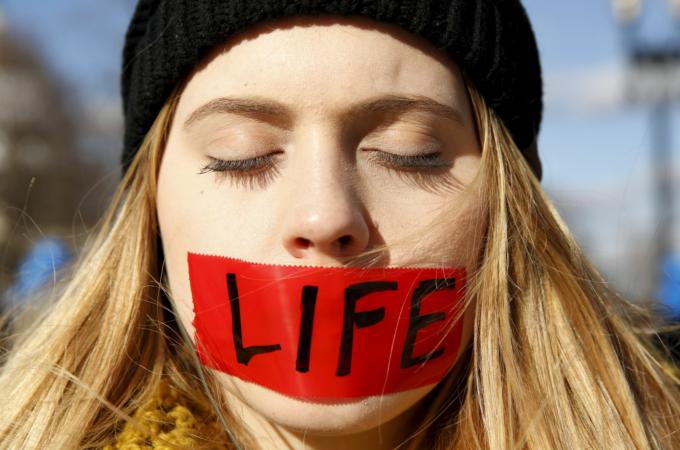The death of Roe
Norma McCorvey, alias Jane Roe of Roe v. Wade, died last weekend. Her obituary was front-page news in the New York Times. The 1973 decision that bore her pseudonym continues to stand for the proposition that abortion on demand is constitutionally guaranteed. That proposition is markedly different from the proposition affirmed by the Declaration of Independence and by Abraham Lincoln at Gettysburg that "all men (human beings, thus including women and children) are created equal."
Tellingly, she never got the abortion she had sued for, and ended up putting her child up for adoption. After a rocky life that included a time working for Planned Parenthood, and living as a lesbian, she converted to the pro-life position and ended up as a sincere Roman Catholic, testifying before a Senate subcommittee in 1998: "I am dedicated to spending the rest of my life undoing the law that bears my name." May she rest in peace.
Like the infamous Dred Scott decision over a century earlier which had guaranteed slavery as a property right of slaveholders, the Supreme Court had decided that a class of human beings, in this case unborn babies (or fetuses, as the Court called them) were not entitled to any legal protection. Even in the third trimester of pregnancy, when the Court ruled the state's interest in the "potential life" of the viable fetuses became compelling, the state could not prohibit abortions if the mother's health -- understood broadly to include emotional, financial and familial factors -- were implicated, thus effectively requiring a legal regime of abortion on demand.
Also tellingly, "Mary Doe," the lead plaintiff in Doe v. Bolton, the companion case to Roe that provided for such a broad health exception (a woman actually named Sandra Cano, who died in 2014), also had become pro-life and likewise fought to overturn the decision that bore her name.
The death of "Jane Roe" coincides with talk about the possibility of overturning Roe v. Wade. This is because the unexpected election of President Donald J. Trump has created the possibility of shifting the balance of power on the Supreme Court, and Trump, himself a recent convert to the pro-life cause, has said he wants to overturn Roe v. Wade and to appoint judges who will do so.
Recently, he nominated Judge Neil Gorsuch to succeed Justice Antonin Scalia, who died a year ago, on the U.S. Supreme Court. Even if Gorsuch is as dependably pro-life as Scalia was, however, that would not change the reality that the Court would still be dedicated to upholding the "central holding" of Roe by at least 5-4, as it did when Scalia was still alive in the 1992 decision of Planned Parenthood of Southeastern Pennsylvania v. Casey.
It would take at least another conservative Supreme Court appointment to replace a liberal like Justice Ruth Bader Ginsburg or a swing-vote like Justice Anthony Kennedy in order to have the possibility of overturning Roe. Even then, there is no guarantee that the new swing justice would rule to overturn Roe.
Even if he or she did, though, it is important to realize what this overturning of Roe would mean as a legal and constitutional matter. It would simply and merely return the issue of abortion regulation to the legislative arena. In places where the abortion lobby is politically and financially powerful, places like Massachusetts, I venture little if anything would change in the permissive laws regarding abortion (including state-supreme-court guaranteed public funding for elective abortions for indigents, in the case of Massachusetts), absent a major shift in public opinion and local politics. In more socially conservative jurisdictions like Texas or Missouri, there might be more restrictive abortion regulations passed by state legislatures through the normal democratic process.
We have been to this juncture before, 25 years ago at the time of the Casey decision. Then it appeared probable that the Supreme Court would overturn Roe, since it had a majority of appointees by Republican presidents who were pledged to the overturning of Roe. Instead it reaffirmed Roe, led by Justice Anthony Kennedy, a Reagan appointee. So while the death of Roe is possible in the next four years, the strategy is, pardon the expression, premature for the moment. It's just not viable yet. If Trump gets another Supreme Court appointment (assuming Gorsuch is confirmed, as seems likely), however, all hell will break out over the issue of the continued relevance of Roe. If the day of its overturning ever comes, though, good riddance! The U.S. Constitution does not guarantee such a right to take innocent human life. Roe v. Wade's obituary is long overdue.
- Dwight G. Duncan is professor at UMass School of Law Dartmouth. He holds degrees in both civil and canon law.



















